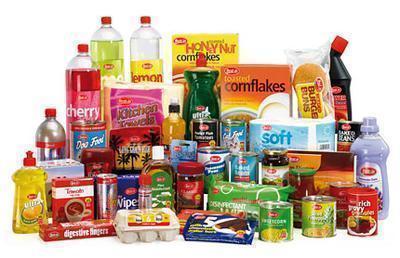Recent evidence suggests that the penetration of private label in the grocery sector in Ireland is growing and that we are finally catching up with some of our European counterparts. Estimated to be at about 22 per cent of the market which puts us up there with the likes of Denmark and the Netherlands, it is still well behind global leaders like the UK and Switzerland at around 45 per cent. What is causing this rise in private label and does it inevitably spell the end of manufacturer brands?

The first part of the question is easy to answer. The downturn in the economy has forced many shoppers to be more price-sensitive and to question the premium attached to a manufacturer’s brand. So a shopper buying milk, for example, is likely to see little added value in the branded product and choose the usually cheaper private label instead. But the move to retailers that carry primarily private labels such as Lidl and Aldi is also a big factor. These chains now account for almost 14 percent of the Irish grocery market and predominantly carry their own-branded products.
Whether these changes herald the demise of well-known brands will largely be down to decisions made more by manufacturers and retailers rather than consumers. The success of private label varies massively by product category. In the grocery sector it has taken up to 50 per cent of categories like aluminium foil, refuse bags, milk and ready meals. In the home improvement/DIY sector own brands like B&Q and HomeBase dominate. But in other categories, the impact has been negligible. In the beer, toothpaste and baby food categories, own-labels account for under 3 per cent of sales and they have made almost no impact on the cosmetics sector. As long as manufacturers continue to invest in their brands and maintain powerful emotional connections with their customers, they will be able to meet the challenge posed by retailers. For example, it is almost 20 years since the likes of Sainsburys and Dunnes Stores introduced their own-brand colas, but Coca Cola continues to dominate the category. Similarly, the market share taken by own-brand yoghurt in the UK fell from 21 per cent to 5 per cent between 2001 and 2005.
But retailers have also learned from their mistakes. The change in vocabulary from private label to own-brand is insightful. Whereas, private label suggests cheaper alternatives, own brands like Tesco Finest, Organics and Healthy Living are all brands in their own right. If retailers simply market cheap versions of brands, they force manufacturers to respond with their own low-price offering which has the net effect of commoditising the category and reducing margins for both players. Sales of private label products in Sainsbury’s in the UK rose to over 50 per cent but it continued to lag far behind Tesco in overall market share terms with the result that it has tried to raise the profile of its brands by partnering with the likes of Jamie Oliver. Forcing manufacturers out of business is not in a retailer’s interest either as healthy competition on the supply side improves innovation which benefits them. Consequently retailers have become much more sophisticated at building their own brands and at exploiting gaps in the market left by manufacturers – witness for example, the slick packaging on the Tesco Finest range.
What has simply happened is that the battle for mindshare has a powerful new player – the retailer, who in many cases is armed with better consumer information than manufacturers. As the old cliché goes, the more things change, the more they stay the same.
Related articles